Locking vs. Traditional Tuners: Worth The Hassle?
Posted by Jason Klagstad
The lowly tuner is taken for granted.
It doesn’t matter how great your technique is or what kind of gear you have if your instrument won’t stay in tune. Despite their importance to your overall sound, much less attention is given to the tuner than other parts of your guitar.
And why?
Correct tuner performance is crucial to the rest of the guitar's performance: if they're supposed to hold strings in place but don't perform that simple function, what's the point?
A big part of guitar design work is to minimize the inherent flaws so that the player won't notice them while playing...and let's face it, keeping guitar strings in tune is a big, ongoing part of any player's problems.
Environmental factors like temperature, corrosion, fatigue and humidity also impact stability. Add in a poorly working traditional tuner and it only makes these problems worse resulting in flawed tuning and frustrated guitarists and angry band members.
What now?
Well, eliminate the possible problems one by one.
- Have your guitar set up and evaluated by a professional. Not just a string-change jockey - a real luthier who knows his/her stuff.
- Tell the pro what the 'pain points' of your instrument are, i.e., I think my strings stick (is it at the nut or string retainer?) My guitar doesn't intonate properly. Is my bridge the problem (if vibrato, stop piece, TOM, etc.)? Once they eliminate all the other issues but staying in tune still remains a problem, your tuners are probably the culprit.
You could always just put a new set of the same tuners on your guitar. Retrofit right in - no messing around... but locking tuners offer a quicker and easier to manage string change solution. The key advantage of locking tuners over traditional string wrap or string insert (a la Fender) is a matter of simplicity and speed when changing the strings and stability with no slippage once everything is set.
With traditional tuners, you tighten your strings by winding them tight and tying them off in a knot. Then you crank the tuner knobs until the you have sufficient string wound around the tuner shafts so they don't slip and then stretch you the windings so they stay. Fender's early split-shaft Klusons offered a better, quicker way of restringing on the fly for the gigging journeyman musician. Locking tuners offer the next evolutionary step in the refinement journey.
If you have a Floyd Rose type locking bridge & nut, it becomes half rocket science/ half art to balance the bridge while you are intonating AND ALSO tuning the floating bridge. Best of luck keeping it that way.
With locking tuners though, tightening the strings takes just a half turn of the tuning peg—a much quicker and more convenient way to put new strings on your instrument requiring no bridge balancing and minimal stretching if any. Simple, easy and efficient and no slippage. Can be done at a gig between songs, if necessary. I know, I've done it.
They look clunky or...they don't fit the style of my guitar! The most commonly cited disadvantage of even the best locking tuners is their bulky headstock appearance. Buying the new slimmer locking versions can be one way to avoid this disadvantage, but for those who prefer the look of a traditional tuner, even the relatively slim and attractive versions of locking tuners aren’t quite right. If you are that person, take a look at the Gotoh Kluson lookalikes below - they come really close to a mesh between vintage and modern locking.
What do they cost? Somewhere between $60 - $120 for a name brand set of six depending on mfr. (not including installation). We would recommend a name brand due to the fact that since the tuners clamp on a hardened steel string, you'll want to be assured that the tuner clamping mechanism will last as long as the tuner gear system.
One teensy consideration: The transition from traditional tuner to locking tuners may require a small mod to your headstock. Maybe. We know, we know: the idea of anyone drilling holes in our precious guitar can cause us to run from the room clutching it. Still, we'd like to stress that the changes aresmallcompared to the benefits once installed. If installed right, they WILL lock your strings in place, preventing string tuning deformation due to the windings loosening or the string slipping on the shaft.
So, here are the major companies making locking tuners:
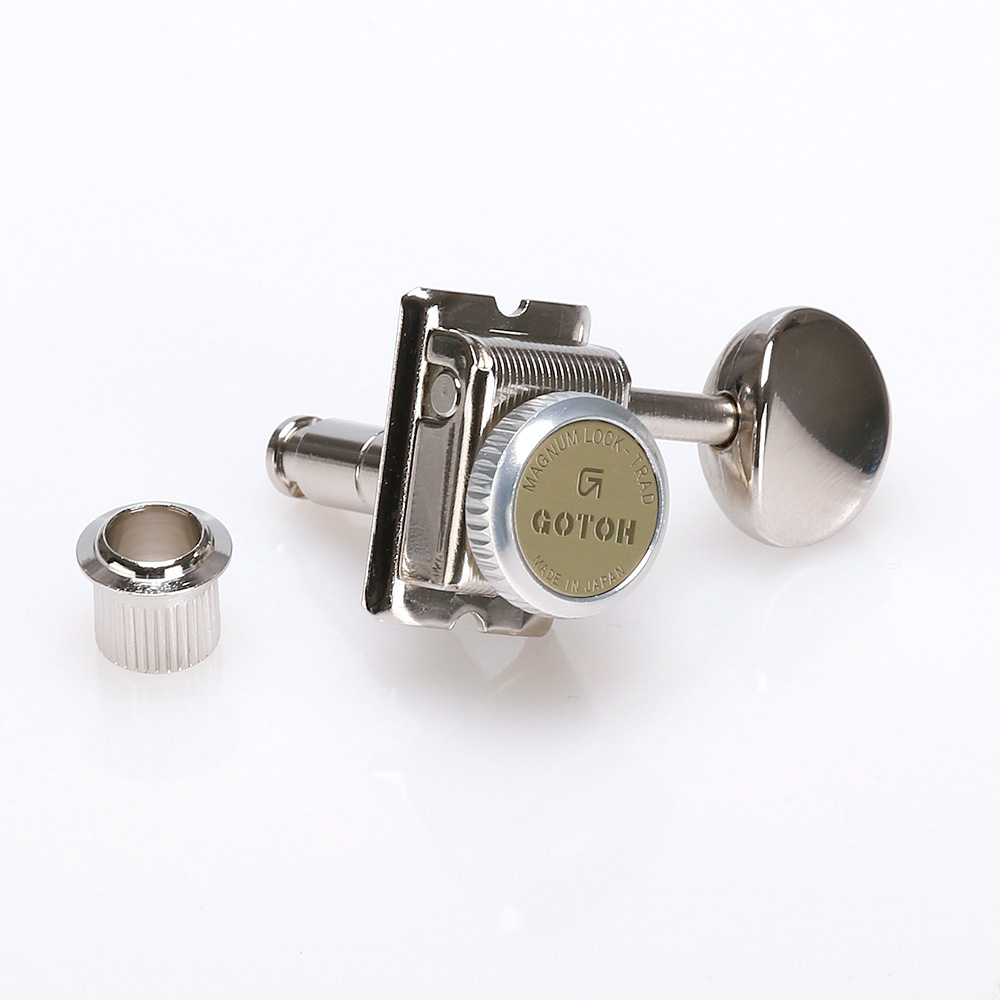
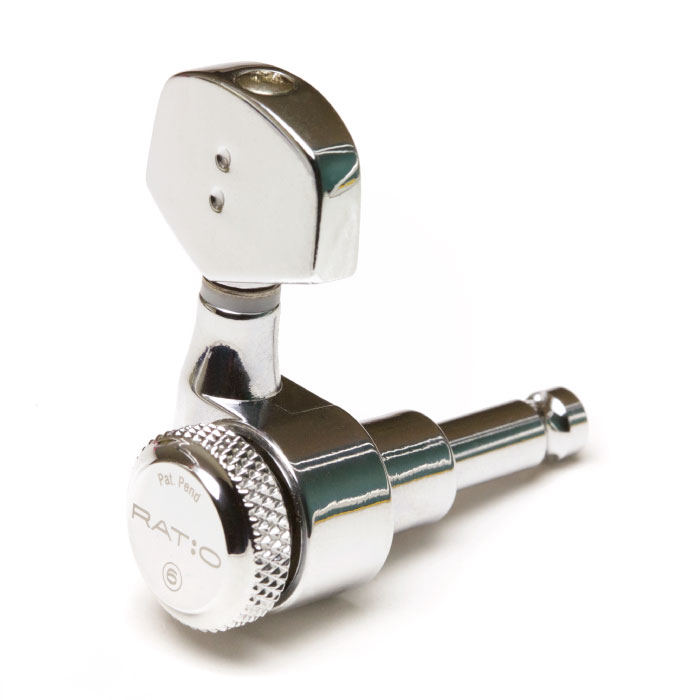

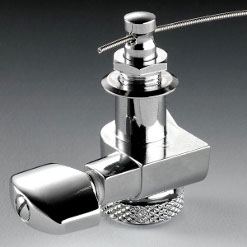
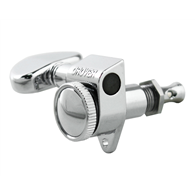
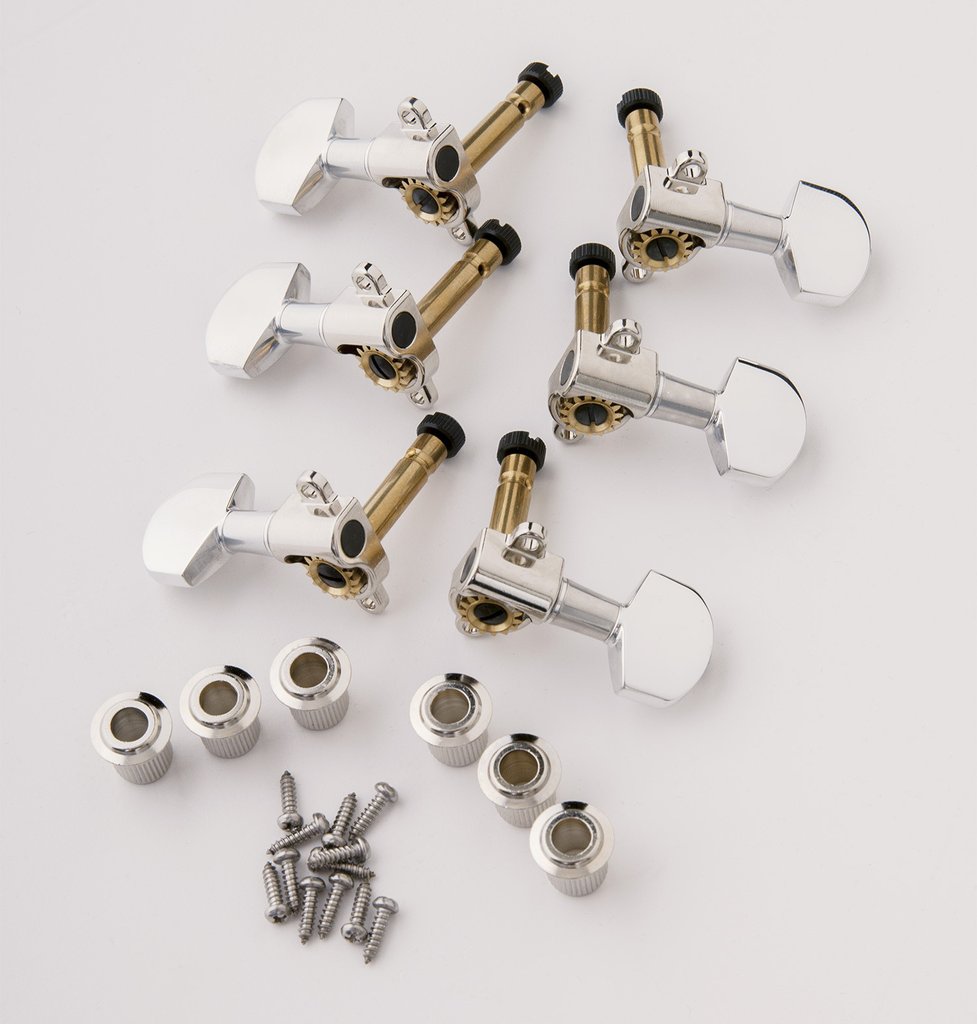
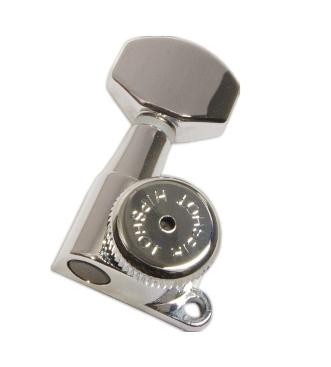


If you've come this far and are set on making a change for more stable tuning, we've taken the time and trouble to select (in our opinion) the four best locking tuners on the market.
Fender Locking Tuners
The same tuners that come standard on Fender’s American Deluxe series of guitars. If you want to upgrade your Fender Strat or Tele, these'll be drop-in replacements.If you're playing a different model or type, there'll be some modding that you'll need to do but it will not be extreme. Fender has refined these tuners over years of use and design changes and you'll find these robust and long-lasting. With this set of locking tuners on your guitar, you’ll spend less time worry about your intonation, leaving you more energy and time to focus on your sound.
Grover 502C Roto-Grip Locking Rotomatics:
The tuners from Grover are a drop-in installation for guitars that use a 3x3 tuner configuration and have an 18:1 gear ratio. They also come with all the hardware you’ll need to mount them. These are among the best locking tuners you can buy from a longstanding, trusted name.
Sperzel 6 In-Line Locking Tuners:
Sperzel is the most popular brand of after-market electric guitar tuners and their locking tuners are used by professionals of all genres, and on a wide variety of brands and styles of instrument. This Sperzel design is an in-line model, meaning it’s for guitars with tuners all on one side of the headstock such as as Strat or Tele. The staggered post height for each string is a superior design approach that ensures balanced downward tension for each string to minimize any hangup and/or buzz problems at the nut. The tuners are lightweight and strong with reinforced steel for the string clamping inserts that make contact with the string passing through the tuner. Those features are why these tuners are on the 'recommended' list.
Hipshot 6GLO Grip Lock Tuners:
These tuners are less cumbersome than a lot of their competitors making them the preferred type for those concerned about the bulky lockers made by other manufacturers. These are much slimmer and will give your headstock a more traditional profile and heft. They are good looking and smooth to the turn. Although these are not as well known as their competition, they should be recognized as a worthy contender.
In summation:
Are they worth the hassle? Depends...are you frustrated with the current tuning accuracy of your guitar and want to improve it without a lot of cost and hassle? Well, choose the right model as we've described and you and your bandmates will be a lot happier with only a small lightening of your wallet.

